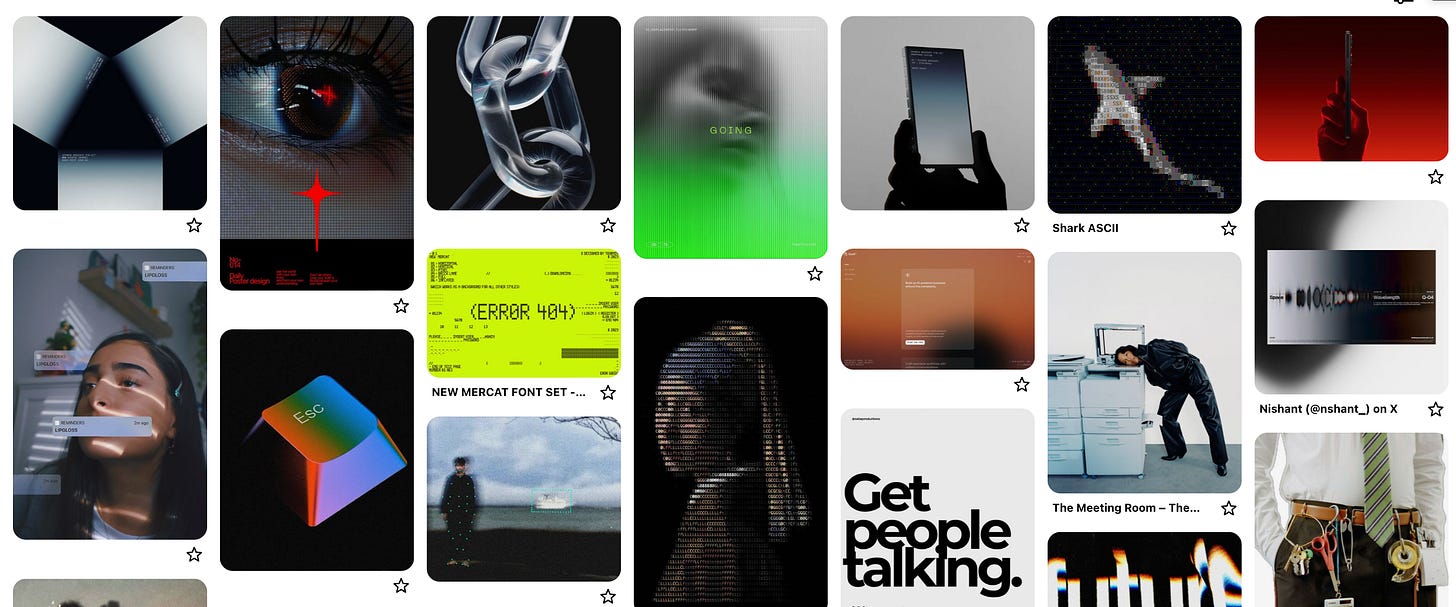Why 2025 is the Year AI Agents Stop Being Optional
Dedicated to the consumer company seeking to elevate intelligently.
Common Ground is Ground's newsletter highlighting the most important consumer news, tech trends, artificial intelligence, in-depth analysis, along with a few extra thoughts from our team. Subscribe today to get the latest issue delivered to your inbox.
The competitive landscape has shifted. While you're debating whether to adopt AI agents, your competitors are already using them to steal market share.
Six months ago, if you asked a consumer company CEO about AI agents, you'd likely get a blank stare or a vague mention of "exploring chatbots." Today, that same conversation reveals a stark divide: companies racing ahead with autonomous AI systems and those suddenly realizing they're being left behind.
The numbers tell the story. 85% of enterprises are planning to adopt AI agents in 2025, while over 50% are planning to adopt them within a year and 82% within three years. But here's what those statistics don't capture: the growing performance gap between early adopters and laggards.
The Shift from "Nice to Have" to Business Critical
AI agents aren't the chatbots of yesterday. While traditional chatbots followed scripted responses, today's AI agents are autonomous systems that can reason, plan, and execute complex tasks without human intervention. They're not just answering questions—they're driving revenue.
A leading consumer packaged goods company used intelligent agents to create blog posts, reducing costs by 95% and improving speed by 50x—publishing content in a single day rather than four weeks. Of those adopting AI agents, nearly two-thirds (66%) report increased productivity, but more importantly, they're capturing revenue opportunities that manual processes simply can't match at scale.
The Zero-Effort Revenue Multiplier
Consumer companies are discovering that AI agents excel in three critical areas that directly impact the bottom line:
1. Always-On Revenue Generation Unlike human teams, AI agents work 24/7 across every customer touchpoint. They're qualifying leads during off-hours, nurturing abandoned carts, and turning casual browsers into buyers while your competitors' human teams sleep.
2. Hyper-Personalized Customer Experiences AI agents can analyze thousands of data points in real-time to deliver personalized recommendations, pricing, and experiences at scale. What once required an army of analysts now happens automatically for every customer interaction.
3. Predictive Business Intelligence Modern AI agents don't just respond—they anticipate. They identify at-risk customers before they churn, predict inventory needs before stockouts occur, and surface growth opportunities human teams would miss.
🔌 Book a demo with Ground AI and learn how your brand can benefit from AI-revenue driving agents.
The Competitive Reality Check
While 50-60% of companies now leverage AI to transform operations, the gap between leaders and followers is widening rapidly. Companies that implemented AI agents early are seeing compound advantages: better customer data, more efficient operations, and higher-converting customer interactions.
Consider Amazon's trajectory: as of 2023, the company has generated 38% more revenue from AI than revenue without AI. Their AI agents aren't just supporting their business—they're defining it. Healthcare leads adoption with 90% of hospitals expected to adopt AI agents by 2025, while 80% of marketers reported that AI tools exceeded their return on investment expectations in 2025.
What Happens to the Holdouts?
Companies still treating AI agents as a future consideration face mounting pressures. As AI-powered experiences become standard, customers expect instant, personalized, intelligent interactions. Meanwhile, competitors automate routine tasks while holdout companies continue paying human labor costs for work that can be done better, faster, and cheaper by AI agents. Every day without AI agents means missing opportunities to collect and act on customer behavior data that competitors are using to optimize their offerings.
The good news is that AI agent implementation has become significantly more accessible. Unlike the complex AI projects of the past, modern AI agent platforms offer plug-and-play solutions that can be deployed in weeks, not months.
The Tipping Point is Now
We're at a unique moment in business technology adoption. AI agents have matured beyond experimental tools to become essential business infrastructure. The question isn't whether to adopt them—it's how quickly you can implement them before your competitive position erodes further.
The companies winning in this transition share a common approach: they're not waiting for perfect solutions or complete certainty. They're starting with high-impact, low-risk use cases and expanding from there. They understand that in a rapidly evolving landscape, the biggest risk is inaction.
For consumer companies specifically, the opportunity is enormous. Your customers are generating signals every day—browsing patterns, purchase behaviors, support needs—that AI agents can turn into revenue opportunities. Every day you wait is revenue left on the table and competitive ground lost to companies that aren't waiting.
Moving Forward
The AI agent revolution isn't coming—it's here. The question is whether your company will be a leader, a fast follower, or a cautionary tale about the costs of moving too slowly in a technology-driven market.
The companies that thrive in the next two years won't be those with the best products alone, but those with the best AI-augmented customer experiences, operations, and decision-making capabilities. The window for competitive AI agent adoption is open now, but it won't stay open forever.
The choice is simple: lead the transformation or be transformed by it.
Curated Intelligence
5 top business use cases for AI agents Read More
Rhode’s $1B Deal—And The Weight It Puts On The Rest Of Us Read More
Korean Beauty Start-Ups Bet Booming US Demand Outlasts Tariff Pain Read More
Tariffs, TikToks, and Trendsetters: Who Ruled Beauty in Q1 2025? Read More
Solawave’s success on Ground
Solawave, the skincare tech brand behind the viral 4-in-1 wand, partnered with Ground to deliver a premium, personalized experience at scale. They wanted to unlock new revenue without increasing CAC or adding work for their lean team. Ground’s Greet AI became an always-on AI partner, guiding customers with smart, on-brand flows from first click to checkout. The experience felt human and elevated, aligning seamlessly with Solawave’s voice. In just 30 days, they saw meaningful growth 📈 and strong ROI, proving AI can be both powerful and resource-light. With early wins in place, the partnership is expanding into its next phase.
Grounded Insights Podcast: Season 1
Shivani Siroya, Founder & CEO of Tala (Series E), talks $0 to $800M growth. Ep 1.
Katia Beauchamp, CEO of Victoria Beckham Beauty, talks brand. Ep 2.
Robert Derow, Managing Director Partner at BCGx (Boston Consulting Group) and Growth Leader, talks the future of growth marketing. Ep 3.
Natalie Holloway, Co-founder & CEO, Bala. Ep 4.
Maggie Sellers, Founder of Hot Smart Rich, talks storytelling. Ep 5.
Grounded Insights Podcast: Season 2
Nancy Twine, Founder of Briogeo, talks building post-Briogeo. S2: Ep 1.
Babba Rivera, Founder of Ceremonia, talks tech-led culture in beauty S2: Ep 2.
More soon!
Finding Common Ground
The Ground community comes together sharing different stories, but common ground.










